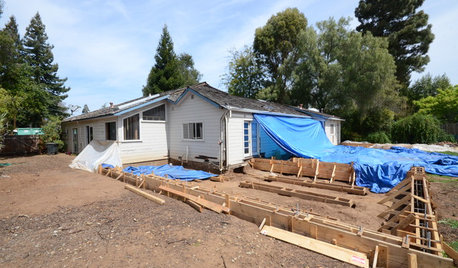Inspection question
rainlan
13 years ago
Related Stories

CONTRACTOR TIPSBuilding Permits: The Final Inspection
In the last of our 6-part series on the building permit process, we review the final inspection and typical requirements for approval
Full Story
CONTRACTOR TIPSBuilding Permits: The Inspection Process
In Part 5 of our series on home building permits, we explore typical inspection schedules for a variety of project types
Full Story
MOVINGHome-Buying Checklist: 20 Things to Consider Beyond the Inspection
Quality of life is just as important as construction quality. Learn what to look for at open houses to ensure comfort in your new home
Full Story
MOVINGHiring a Home Inspector? Ask These 10 Questions
How to make sure the pro who performs your home inspection is properly qualified and insured, so you can protect your big investment
Full Story
REMODELING GUIDESConsidering a Fixer-Upper? 15 Questions to Ask First
Learn about the hidden costs and treasures of older homes to avoid budget surprises and accidentally tossing valuable features
Full Story
SELLING YOUR HOUSE15 Questions to Ask When Interviewing a Real Estate Agent
Here’s what you should find out before selecting an agent to sell your home
Full Story
REMODELING GUIDESSurvive Your Home Remodel: 11 Must-Ask Questions
Plan ahead to keep minor hassles from turning into major headaches during an extensive renovation
Full Story
WORKING WITH PROS10 Questions to Ask Potential Contractors
Ensure the right fit by interviewing general contractors about topics that go beyond the basics
Full Story
WORKING WITH PROS12 Questions Your Interior Designer Should Ask You
The best decorators aren’t dictators — and they’re not mind readers either. To understand your tastes, they need this essential info
Full Story
REMODELING GUIDES9 Hard Questions to Ask When Shopping for Stone
Learn all about stone sizes, cracks, color issues and more so problems don't chip away at your design happiness later
Full StorySponsored
Columbus Area's Luxury Design Build Firm | 17x Best of Houzz Winner!
More Discussions








larke
hendricus
Related Professionals
Baltimore Architects & Building Designers · Franklin Architects & Building Designers · Hockessin Architects & Building Designers · Parkway Architects & Building Designers · Bowling Green General Contractors · Deer Park General Contractors · Dothan General Contractors · Euclid General Contractors · Hammond General Contractors · Lakewood General Contractors · Medford General Contractors · Nampa General Contractors · New Carrollton General Contractors · Norwell General Contractors · Key Biscayne Home Stagerslarke
sparksals
rainlanOriginal Author
creek_side
brickeyee
rainlanOriginal Author
creek_side
rainlanOriginal Author
creek_side
rainlanOriginal Author
logic
larke
creek_side
brickeyee
creek_side
logic
rainlanOriginal Author
logic
cocontom
mariend
brickeyee
berniek
rainlanOriginal Author
brickeyee
logic
berniek
brickeyee
weed30 St. Louis
larke
totsuka
chrisk327
totsuka
rainlanOriginal Author
brickeyee